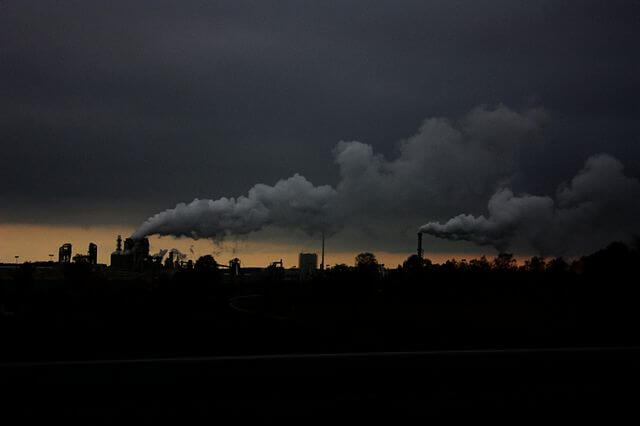
The UK is exploiting Brexit to erode key environmental protections and is lagging behind the EU, despite Labour’s manifesto pledge not to weaken standards, new analysis shows.
Experts warn that ministers are “actively going backwards” in some areas, though there have also been limited improvements such as the ban on sand eel fishing.
Despite promising a “reset” with the EU, Keir Starmer’s government has yet to close legal loopholes that widened after Brexit and, in some cases, is removing EU environmental rules entirely.
Research by the Institute for European Environmental Policy (IEEP) shows the UK trailing the EU on protecting endangered species like red squirrels, tackling air and water pollution, phasing out harmful chemicals, and making consumer goods more recyclable and energy efficient.
Since Brexit, the EU has adopted 28 new or updated environmental laws that the UK has not followed. The UK has also rolled back four existing measures, including rules on protected habitats, pesticides, and fisheries.
Key areas of concern include:
-
Planning and development: The new bill weakens EU habitat rules, letting developers pay into a general nature fund rather than replacing habitats destroyed by construction.
-
Water quality: The EU is moving to clean rivers of chemicals and microplastics and forcing polluters to pay; the UK is falling behind.
-
Air pollution: The EU is tightening clean-air laws while the UK has deleted EU protections from its statute book.
-
Recycling and circular economy: The EU is imposing strict design standards, risking the UK becoming a “dumping ground” for poor-quality, hard-to-recycle goods.
Last year, IEEP identified 17 areas where the UK was behind the EU; that figure has now grown to 28.
There are a few “bright spots,” such as the sand eel fishing ban to protect puffins, the creation of more marine protected areas than the EU, and farming subsidies tied to environmental protections. But experts say these gains are outweighed by regressions in critical areas.
Most troubling is the government’s move to dismantle EU-derived habitat rules safeguarding rare species such as dormice, red squirrels and nightingales. The Office for Environmental Protection (OEP) has warned that the planning and infrastructure bill amounts to a “regression” in law. Despite Labour promising in its 2024 manifesto to build houses without undermining environmental protections, ministers have ignored its recommendations.
Michael Nicholson, the head of UK environmental policy at IEEP, said: “It is one thing deciding not to keep pace with the EU in actively strengthening our environmental laws but quite another to actively go backwards and remove environmental protections that we inherited from our EU membership.”
The EU itself has also watered down parts of its agenda—delaying a law on deforestation in supply chains, giving carmakers more time to meet pollution limits, and downgrading wolf protections. Environmental NGOs face a funding freeze they argue weakens democracy, and after widespread farmers’ protests, the bloc nearly scrapped a negotiated nature restoration law.
Nicholson added: “Five years on from Brexit, we can now see that the UK has chosen not to keep pace with the EU in strengthening its environmental laws and policies.
“The EU is no nirvana for environmental protection, but the UK is falling behind and should be looking to use its post-Brexit independent policymaking powers to go above and beyond what the EU is doing. Sadly, it is losing this race to the top and has ceded leadership to the EU.”
Northern Ireland, however, remains bound to some EU rules under the Windsor Framework, including wastewater treatment, chemicals regulation, and pesticide standards.
Before Brexit, UK politicians—including former environment secretary Michael Gove—claimed Britain would become a “world leader” in green regulation. In practice, the opposite has happened.
Richard Benwell, the chief executive of Wildlife and Countryside Link, said: “The UK shouldn’t just match the EU on environmental standards, it should lead. In many areas where the UK is falling behind – like banning toxic chemicals – aligning with the EU would save time, money and wildlife. In other areas, the government could put a bold UK slant on an EU idea. The polluter pays plans in the urban wastewater treatment directive should go economy-wide. Where we’re leading, like nature-friendly farming and banning bottom-trawling, the Department for Environment, Food and Rural Affairs should have Starmer’s backing to be braver, to turn the tentative steps forward into a confident plan for a nature-positive economy.”
The Green MP Ellie Chowns said: “The Green party warned that Brexit could see the UK reduce regulations in a race to the bottom. Unfortunately, the election of a Labour government a year ago hasn’t prevented that happening.
“Of course, it doesn’t have to be like this. We could have clean rivers, breathable air, farmers encouraged to work with nature and consumer products designed to last and be recycled. We could work more closely with our EU neighbours and join the customs union to better align our regulations upwards. And that is what it boils down to – a political choice. The government has made the wrong choices and needs to change direction.”
A Defra spokesperson said: “We’re rebuilding the water network with a record £104bn investment to halve sewage spills by 2030, banning bee-killing pesticides, banning single-use vapes, creating the first National Forest in 30 years, releasing the first wild beavers in centuries, investing billions into nature friendly farming, and we will continue to deliver win-wins for the environment and development through our new Nature Restoration Fund.”
——————————————————————————
At Natural World Fund, we are passionate about restoring habitats in the UK to halt the decline in our wildlife.

